Covid-19: Three-tier system expected and Queen honours front-line workers
- Published
Here are five things you need to know about the coronavirus pandemic this Saturday morning. We'll have another update for you on Sunday.
1. Three-tier system set to be announced
Prime Minister Boris Johnson is to make a statement to MPs on Monday to give details of new restrictions to slow the spread of coronavirus in England. A three-tier system is expected to see areas face differing rules depending on how quickly cases are spreading. A letter from Mr Johnson's chief strategic adviser to MPs in the north-west of England tells them "it is very likely that certain local areas will face further restrictions". Pubs and restaurants could be closed in parts of northern England and the Midlands, with a ban on overnight stays also being considered. The most severe measures would be agreed with local leaders in advance before they are implemented.
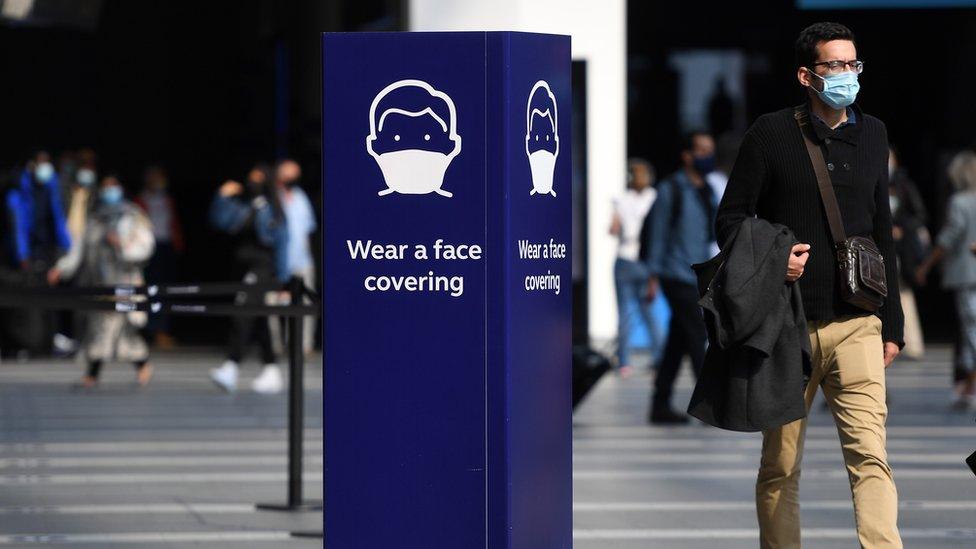

2. Covid heroes recognised in Queen's honours list
The Queen's Birthday Honours list has been published, and is dominated by front-line workers and volunteers who have helped in the response to the pandemic. It's usually published in June when the Queen celebrates her official birthday but was postponed so that those who played crucial roles in the first months of the outbreak could be recognised. Out of 1,495 recipients, 414 honours are for coronavirus contributions. They include Felicia Kwaku, pictured below, who was awarded an OBE for services to nursing after championing the cause of nurses from BAME backgrounds during the pandemic. Footballer Marcus Rashford, who helped secure the extension of a free school meals scheme for children, becomes an MBE, as does fitness coach Joe Wicks, who led daily free exercise sessions while schools were closed.
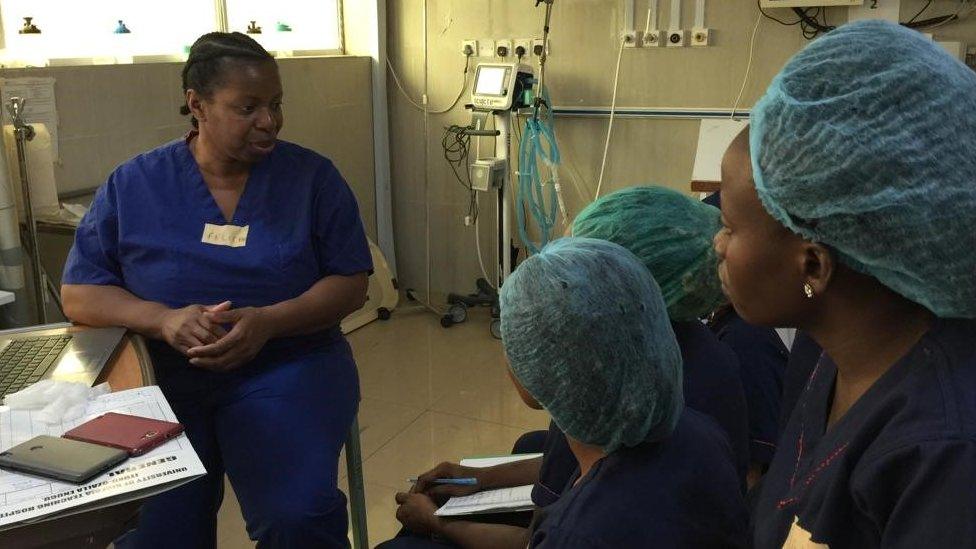

3. What is the mental health cost to the young?
A growing number of psychologists, psychiatrists and child health experts believe the needs of the young are being ignored in this pandemic. They say children have suffered enough and should be allowed to live normally. And they point out that what young people have been asked to sacrifice for others far outweighs their own health risk from the virus. It comes as thousands of students are in enforced self-isolation at universities, and thousands more children are missing out on school because of positive Covid tests in their midst. This follows nearly four months of disrupted education and cancelled exams during lockdown, which led to a stressful scramble for university places when grades were recalculated. They face an economy in recession and a future where jobs are in short supply.
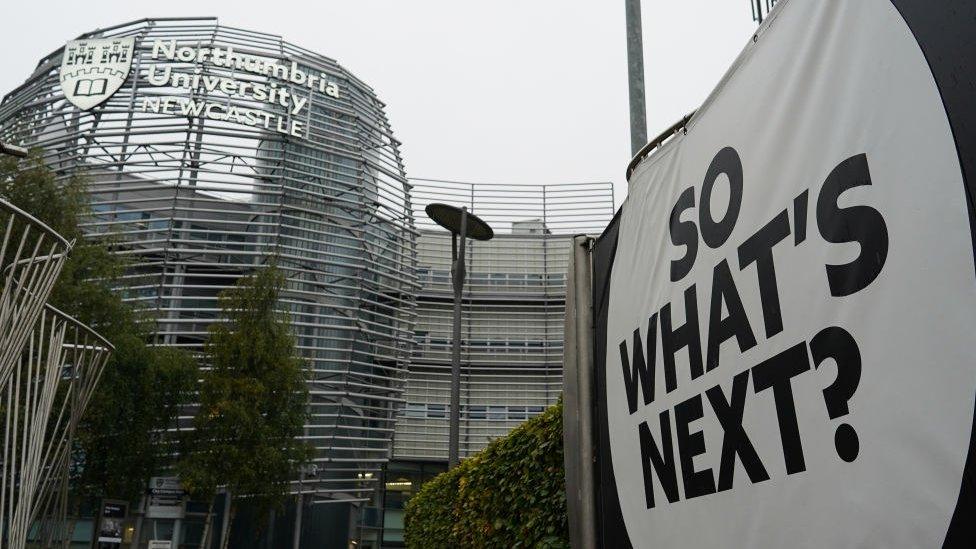

4. Grieving father donates plasma
A father who caught coronavirus from his daughter before she died from Covid-19 is donating plasma to help other people with the virus. Alan Mack, whose daughter Rebecca died in April, is part of a clinical trial of so-called "convalescent" plasma. It is hoped that antibodies built up by people who have had the virus will help others recover. "I don't want anybody, if at all possible, to go through what we had to go through," Mr Mack said. "There are so many people, I think, who just think it won't happen to them - and it can." Rebecca, 29, who worked in the children's cancer unit at Newcastle's Royal Victoria Infirmary and for NHS 111, had been self-isolating at home. She had called an ambulance but died before it arrived.
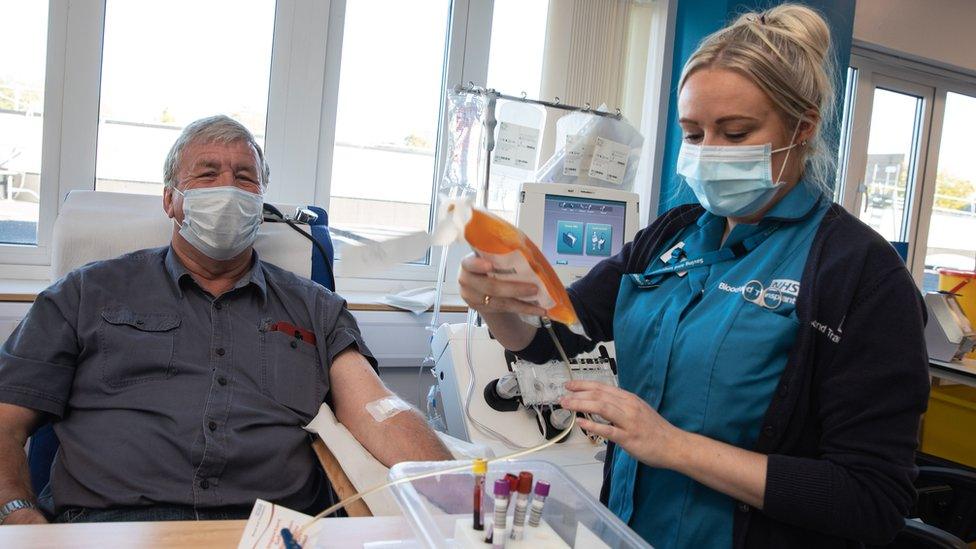

5. Portraits in quarantine
A photographer has captured people's lives in quarantine as part of an online collaboration. She invited people to draw on the images she took of them, and to write notes revealing their thoughts. Doma Dovgialo said of her project, Portraits of the Quarantined Mind: "I often feel that a photograph is simply not enough... I find that the best way to visualise what another person has been through is to allow them to become the main storyteller."
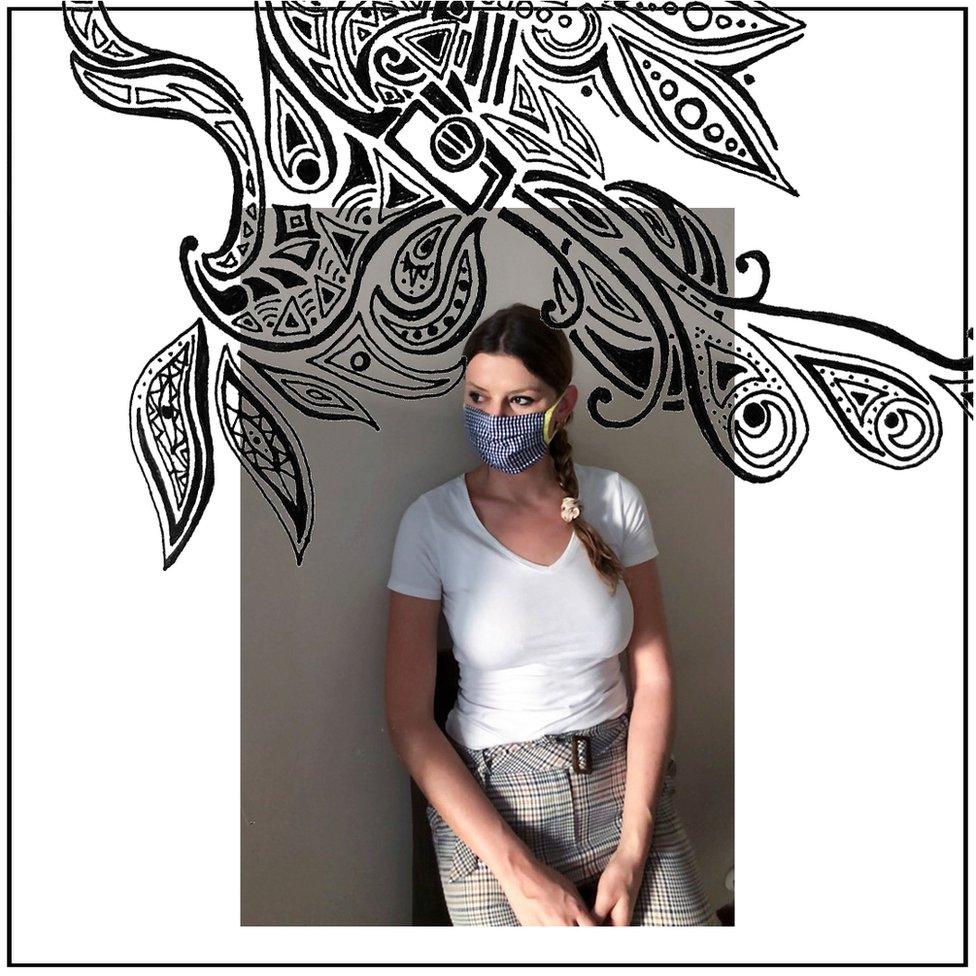


And don't forget...
To check what the Covid restrictions are where you live.
Also, find more information, advice and guides on our coronavirus page.
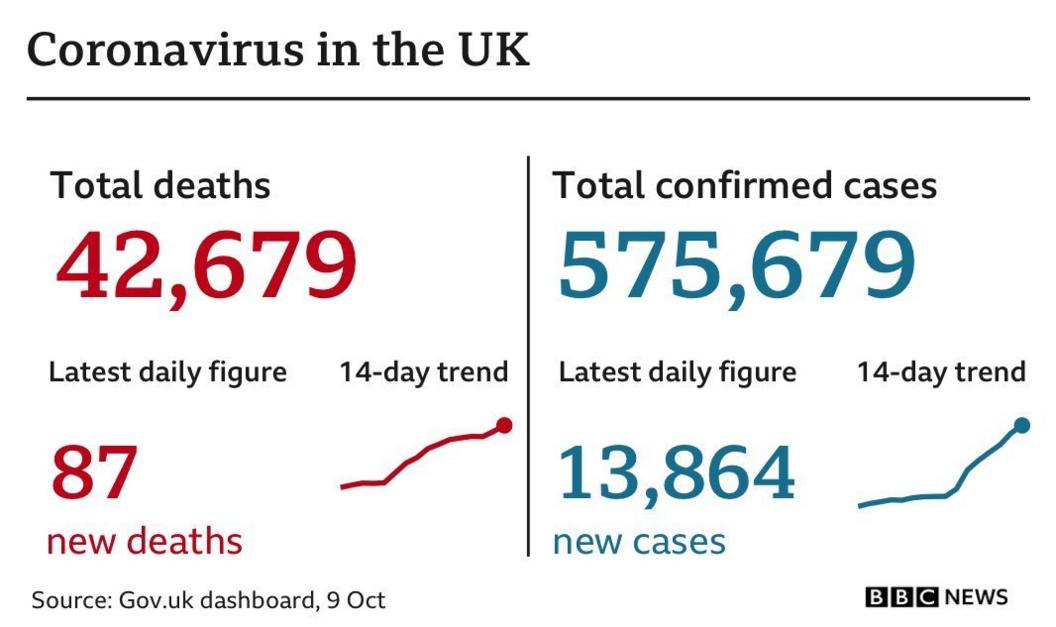


What questions do you have about coronavirus?
In some cases, your question will be published, displaying your name, age and location as you provide it, unless you state otherwise. Your contact details will never be published. Please ensure you have read our terms & conditions and privacy policy.
Use this form to ask your question:
If you are reading this page and can't see the form you will need to visit the mobile version of the BBC website to submit your question or send them via email to YourQuestions@bbc.co.uk, external. Please include your name, age and location with any question you send in.